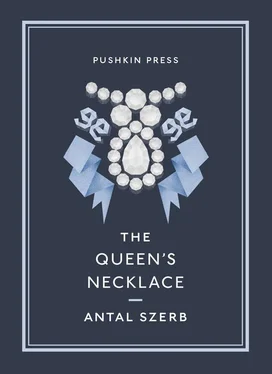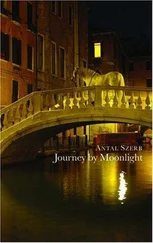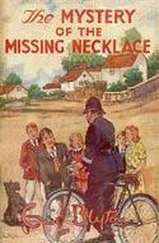The significance of all this becomes clear if for the Italian Renaissance we read high European civilisation, and for France the birth of human freedom. By 1941 both were staring into the abyss. To go on writing this book amidst the degradation all around him was — as it had been with the defiantly insouciant novel ( Oliver VII ) he had just finished — to make a very clear statement — a celebration of those values that mattered to him most. And with his own identity as a Hungarian, and indeed as a human being, under attack, it was also an affirmation of his deepest sense of himself.
This might also explain why he poured into it not only the vast mass of material he had gathered over the years, in the great libraries of Paris “now closed to me for the indeterminate future”, but also the full range of his literary experience — as poet, essayist, reviewer, literary historian and novelist. That experience was central to his sense of who he was, and was determined to remain. The resulting many-sidedness makes it a highly personal document, and is the source of its great strength and charm.
For some readers, however, that might also make a problem. Serious historical arguments, based on political, social, constitutional and economic data, are not usually presented in such an apparently freewheeling manner, with the lightness and gaiety, the irrepressible playfulness, that characterise this book. Could anyone having so much fun really be serious?
The objection was a familiar one. It had been applied to his work many times before, not least to his (still used, and still highly regarded) histories of Hungarian and World Literature; and he deals with it directly:
“People in this country expect scholarly works to be unreadable; from which they are led, quite logically, to the erroneous conclusion that anything that is readable cannot therefore be scholarly. A great many critics have reproved the relaxed, often slightly mocking, tone of my books, insisting that I cannot possibly respect literature if I talk about it in such a cheerfully familiar way.” But he remains unrepentant. His way is “to speak as one human being to another, looking to find kindred spirits and good company”.
His notion of ‘good company’ means treating the reader like an old friend, a congenial companion with whom he is sharing a relaxed conversation, without the slightest pressure in the world. Thus he defers the decisive ‘action’ to Chapter Five, turns aside for two further chapters, revisits it briefly, then regales us with an Intermezzo that sets off in the general direction of Sweden before returning, very gently, by way of a great many other curiosities. Topics covered elsewhere in the writing include a history of the changing fashions in clothing, manners, music, theatre and landscape gardening. These ‘digressions’ occupy a significant part of the book.
Naturally, they draw directly on Szerb’s experience as an essayist, cultural critic and literary historian. But the fiction has also left its mark. Despite his claim that the work “eschews every kind of novelistic embellishment and amplification”, once he warms to his theme old habits get the better of him, and the result is some of the finest and most memorable writing of all. The ever-shifting, ever-mimetic and playfully ironic style gives the character portraits an intense immediacy, while leaving us in no doubt about what the author really thinks.
Szerb’s hallmark as a novelist was the manner he described as ‘neo-frivolous’—the insistence on exploring the weightiest of themes through the slightest of materials: for example his use, in The Pendragon Legend , of multiple parodies of English minor fiction of the 1930s to explore the nature of the self. This deceptive frivolity is nowhere more in evidence in The Queen’s Necklace than in that constant flow of amusing and apparently inconsequential diversions. Analytic historian turns cicerone, becomes a wonderfully informed guide, philosopher and friend as he shows us round the age. It is one that, for all its problems, he knows intimately, and loves.
But these digressions always serve a purpose. On the simplest level, they flesh out the broader picture he is painting of the period, including the mood and atmosphere of the time, and the attitudes of the various social groups he is interested in. And they are more than mere background. They gather up, not quite ‘causes’, but a whole range of contributing elements, small tributaries of the gathering river of political revolution. Such matters as taste in the fine and applied arts are not incidental but expressive of underlying truths about any age, and few historians would nowadays contest that. But even the lesser titbits and jollier asides play their part in illustrating, or widening, some specific argument. A simple example is the bizarre anecdote about the rich man’s son who offers purifying incense to those visiting his father’s house, which looks like a mere squib until the writer locks it into his thesis about the bad conscience of the ruling classes and its role in the catastrophe.
The catastrophe itself, however, remains forever just around the corner, and that stopping point is another clue to his purposes. While his narrative necessarily glances back to the reign of Louis XIV, when so many of the moods and mechanisms leading to revolution were unwittingly put in place, the forward gaze is halted three years before the event itself. Unlike most accounts of this period, we get no demagoguery, no Robespierre, no tumbrils, no guillotine. The reader, he tells us, already knows about all that.
Such an attitude might also reflect a sensitive person’s unwillingness to face up to the savagery, the gratuitous cruelty and carnage that ensued — especially as these had so dramatically resurfaced in the immediate world around him. On the other hand, what Szerb does give us spares us none of the greed, folly, cynicism and selfishness that mark every human age. But in the end, they too are not his final concern. There are dimensions of experience that interest him beyond the world of politics and the mechanics of social change.
And so we get the Epilogue, with its quite unexpected stress on what Talleyrand called “the sweetness of life”. “The reader might well be left with the impression that the final hours of the Ancien Régime were care-worn and oppressive, a ‘moral wasteland’, a time of drought before the storm, and he would perhaps be glad not to have lived then. Which would be quite wrong. To have been alive then must have been to experience one of the most delightful of European centuries.”
There follows yet another ‘digression’, about the (then as now) somewhat unfashionable paintings of Watteau and Fragonard, and it too confirms, if we ever doubted it, what an intensely personal document the book is; what a naked expression of the writer’s own mind and sensibility. We are back in Mihály’s world of Journey by Moonlight .
With a kind of dreamlike intensity, (these) works conjure up in our souls the eternal myth of the great woodlands: mighty trees, tiny human and animal figures; the trees bent in sorrow, the men and women depicted beneath them existing in a kind of superhuman joy that almost succeeds in making their baby faces seem serious: a joy that, like music, is almost painful … The viewer is filled with a rich, complex yearning, an intense desire to know their secret, their unspoken mystery, a desire to return to the woodland world that is sweeter than anything in this life; and finally, the desire for something — one knows not what — that great and inexpressible nostalgia which truly creative art awakens in the soul.
At which point the real Antal Szerb steps forward.
And then it begins to dawn on one: this age was as beautiful as the most finely worked lace; as a piece of Sèvres porcelain with its timeless charm and fragile delicacy; as the noble oozings of the Tokai grape, full and rich with sweetness; as the autumn air in Hungary, when the reddening leaves are scented with the inexpressible sweetness of death.
Читать дальше












